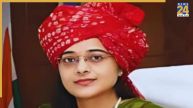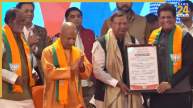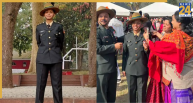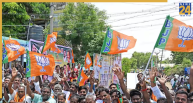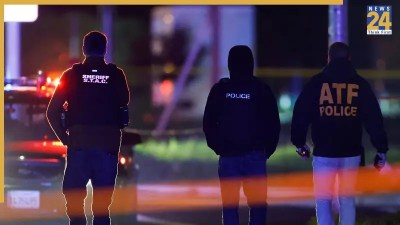Amitabh Bachchan: The Delhi High Court on Friday issued an order prohibiting anyone from using the name, image, or voice of actor Amitabh Bachchan without his consent.
The 80-year-old actor was granted an injunction by the court, which claimed that other parties were abusing Bachchan’s celebrity status. It requested that the government and cellular service providers take note of its decision, which was made in response to an actor’s plea.
In his petition, Bachchan requested that the government’s electronics and information technology ministry and telecoms department direct internet service providers to remove a list of links and websites that violate his rights.
It is undeniable that the actor is well-known and featured in ads, according to Justice Navin Chawla. It was observed that the actor felt wronged by the defendants’ unauthorised use of his notoriety to advertise their own products and services.
“Having considered the plaint, I am of the opinion that a prima facie case is made out and the balance of convenience also lies in his (Bachchan’s) favour,” Chawla said. Bachchan is likely to suffer irreparable loss to his reputation if such an order is not passed, he said.
Senior advocate Harish Salve, appearing for Bachchan, gave some examples of how the actor’s name is misused. “There are illegal and misleading lotteries, advertisements and lucky draws which are being run under the name of Amitabh Bachchan. Someone is making t-shirts with his face on it. Someone is selling his poster. Someone has gone and registered a domain name, amitabhbachchan.com,” he said.
Celebrities have previously sought judicial protection for their rights. The Delhi High Court issued an injunction prohibiting Zee Media from using the name of TV star Rajat Sharma in any of its ads a while back.
Sourav Ganguly, a former cricketer, and Rajinikanth, an actor, have each separately petitioned courts to have their personality rights enforced.
Bachchan approached the High Court in order to have his name, likeness, voice, and physical characteristics protected. He requested a restraining order against book publishers, T-shirt sellers, and mobile applications that ran lotteries and affiliated themselves with the actor’s TV game show Kaun Banega Crorepati (KBC).
He claimed that through creating a brand for himself, the public has come to identify him with “trust” and “quality.”
Siddharth Mahajan, Partner at Athena Legal, said there is no specific law in India that exclusively protects personality rights. “Petitioners usually rely on Article 21 that protects the individual right to privacy and publicity as part of the right to life and then performers can get protection under the performers rights protection under the Copyright Act. A name or likeness can also be protected under the trademark law. So a combination of these laws protect personality rights in India,” he said.
It was maybe the case of Justice K. S. Puttaswamy (retired) versus Union of India that established personality rights as constitutional. In that case, Justice Sanjay Kishan Kaul stated that everyone should have the freedom to regulate their own lives, how they are represented to the outside world, and how their identities are used for commercial gain.


